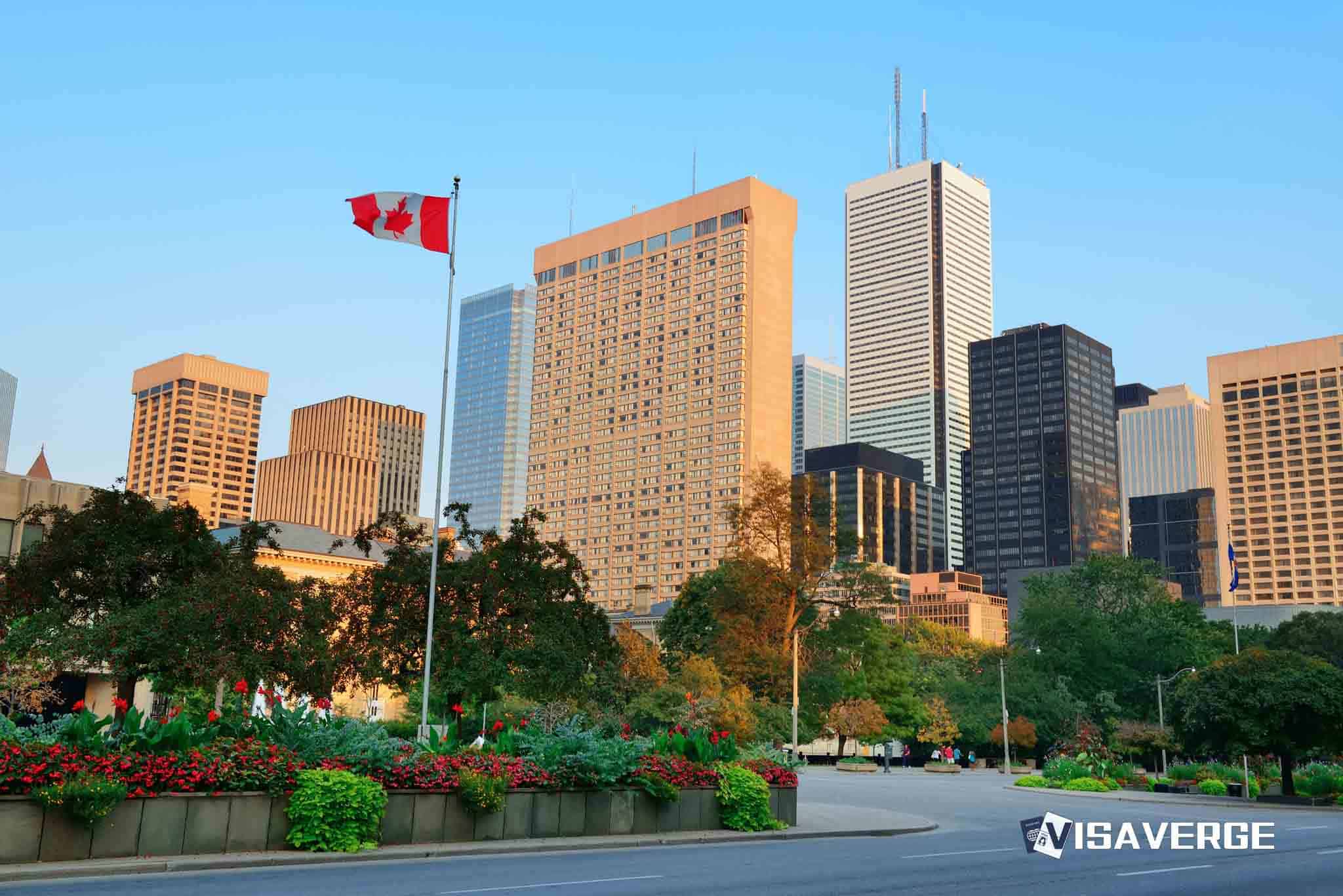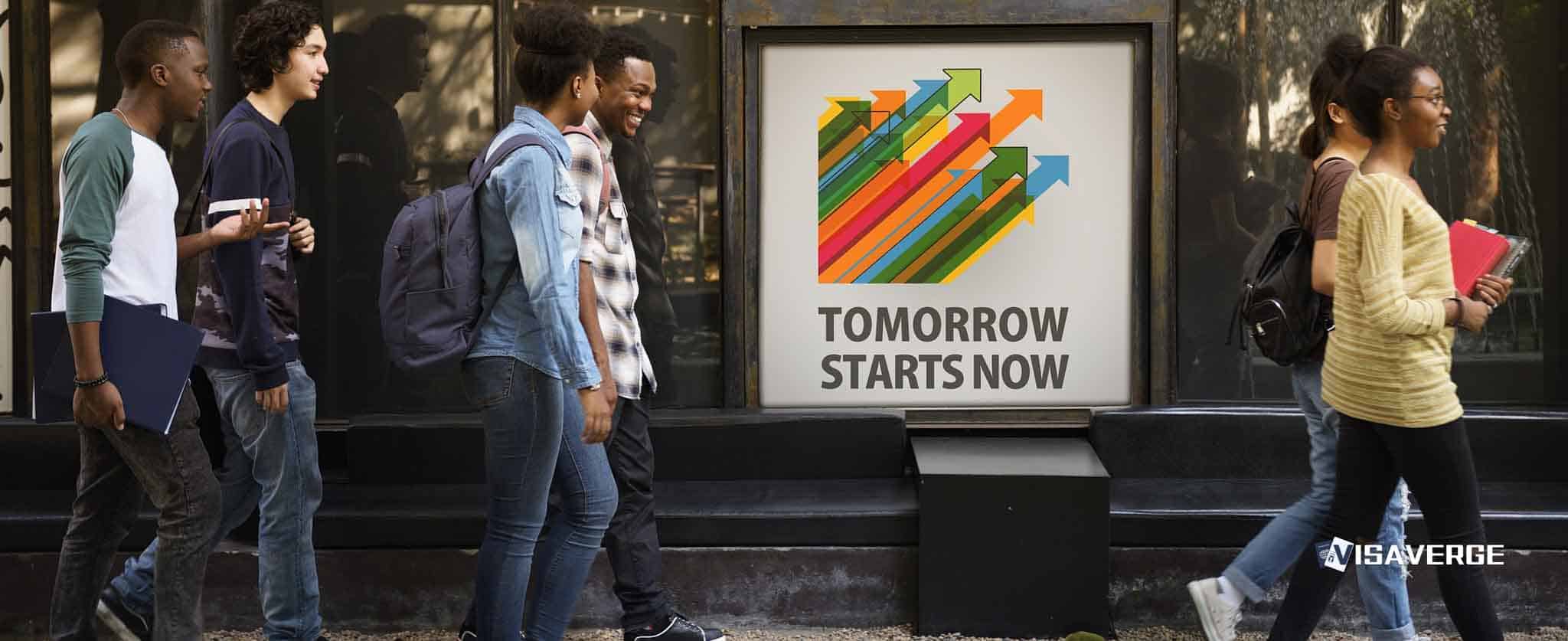Key Takeaways
• IRCC’s May 2025 update shows increased processing times for citizenship and new PR cards.
• Economic immigration programs show mixed results; Express Entry stable, but start-up and self-employed face long delays.
• Regional disparities affect temporary visa and permit processing times, with Nigeria facing longest waits.
Immigration, Refugees and Citizenship Canada (IRCC) has published its latest processing time estimates as of May 20, 2025. These updates are essential for anyone planning to move to Canada 🇨🇦, apply for citizenship, renew a permanent resident card, or seek a temporary visa or permit. This comprehensive analysis examines the new data, highlights key trends, and explains what these changes mean for applicants, employers, families, and other stakeholders.

Purpose and Scope of the Analysis
The primary aim of this analysis is to provide a clear, data-driven overview of IRCC’s updated processing times as of May 2025. By examining the latest statistics, comparing them to previous periods, and interpreting their practical implications, this report helps applicants and stakeholders make informed decisions. The scope covers:
- Citizenship applications
– Permanent resident (PR) cards - Economic class permanent residency
- Temporary resident visas and permits
- Study and work permits
- Passport services
This analysis also considers the policy context, stakeholder feedback, and IRCC’s strategic direction for 2025-2027.
Data Sources and Reference Periods
The findings in this report are based on IRCC’s official processing time updates released on May 20, 2025. These estimates reflect the time taken to process 80% of applications in each category. Where relevant, comparisons are made to previous IRCC updates, including those from early 2025 and late 2024. Additional context is drawn from IRCC’s Strategic Plan 2025-2027 and stakeholder consultation reports.
Official IRCC processing times can be checked directly on the IRCC website.
Key Findings: Processing Times at a Glance
IRCC’s May 2025 update reveals several important trends:
- Citizenship applications are taking longer, with most categories showing increased wait times.
- Permanent resident card processing is slower, especially for new cards.
- Economic immigration programs show mixed results, with some improvements and some delays.
- Temporary resident visas and permits continue to display significant regional variation.
- Study and work permit processing times differ widely by country of origin.
- Passport services remain stable, with no significant changes.
Citizenship Applications: Longer Waits for Most
Current Processing Times
- Citizenship Grant: 10 months (up from 8 months)
- Citizenship Certificate: 4 months (up from 3 months)
- Renunciation of Citizenship: 7 months (improved from 8 months)
- Search of Citizenship Records: 15 months (unchanged)
- Resumption of Citizenship: Insufficient data for reliable estimate
Example:
A family who submitted their citizenship applications in late March 2025 should expect to receive their Acknowledgment of Receipt (AOR) notice soon, but will likely wait up to 10 months for a final decision.
Analysis:
The increase in processing times for citizenship grants and certificates suggests higher application volumes or resource constraints. The slight improvement in renunciation processing may reflect lower demand or streamlined procedures.
Practical Guidance:
Applicants should ensure all forms, such as the Application for Canadian Citizenship (CIT 0002), are complete and accurate to avoid further delays.
Permanent Resident (PR) Cards: Noticeable Delays
Current Processing Times
- New PR Card: 43 days (up from 35 days; previously 19 days)
- PR Card Renewal: 11 days (slight increase from 10 days)
Visual Description:
Imagine a line graph showing a sharp upward trend for new PR card processing times since late 2024, while renewal times remain relatively flat.
Analysis:
The growing delay for new PR cards is concerning for newcomers who need proof of status for travel or employment. Renewal times remain manageable, but even small increases can impact those with urgent needs.
Key Point:
IRCC repeatedly stresses that incomplete applications are a leading cause of delays. Double-check all documents before submission.
Economic Class Permanent Residency: Mixed Results
Express Entry and Related Programs
- Canadian Experience Class (CEC): 5 months (unchanged)
- Federal Skilled Worker Program (FSWP): 5 months (improved from 6 months)
- Express Entry Provincial Nominee Program (PNP): 5 months
- Non-Express Entry PNP: 20 months
- Quebec Skilled Workers: 9 months
- Federal Self-Employed: 53 months (up from 50 months)
- Start-Up Visa: 41 months (up from 40 months)
Trend Comparison:
While some Express Entry streams have stabilized or improved, non-Express Entry PNP and self-employed categories continue to experience long waits. The Start-Up Visa, aimed at entrepreneurs, also faces increasing delays.
Scenario:
A skilled worker applying through Express Entry can expect a decision in about five months, but an entrepreneur using the Start-Up Visa may wait over three years.
Practical Guidance:
Applicants should monitor the Express Entry profile portal and ensure all supporting documents are ready to avoid additional delays.
Temporary Resident Visas and Permits: Regional Disparities
Visitor Visas (Outside Canada)
- India: 19 days
- United States 🇺🇸: 18 days
- Nigeria: 89 days
- Pakistan: 25 days
- Philippines: 27 days
Other Temporary Resident Categories
- Visitor Visa (Inside Canada): 20 days
- Visitor Extension: 163 days (up from 140 days)
- Super Visa: 68 to 172 days (depending on location)
Visual Description:
A bar chart would show short bars for India and the United States 🇺🇸, but a much taller bar for Nigeria, highlighting the wide gap in processing times.
Analysis:
Applicants from Nigeria face much longer waits for visitor visas compared to those from India or the United States 🇺🇸. Extensions for visitors already in Canada 🇨🇦 are also taking significantly longer.
Practical Guidance:
Plan travel well in advance and check the visitor visa application guide for up-to-date requirements.
Study Permits: Country-Specific Wait Times
Processing Times by Country
- India: 8 weeks
- United States 🇺🇸: 5 weeks
- Nigeria: 5 weeks
- Pakistan: 9 weeks
- Philippines: 11 weeks
- Inside Canada 🇨🇦: 4 weeks
- Extension: 223 days
Trend Comparison:
Processing times for initial study permits are generally shorter for applicants from the United States 🇺🇸 and Nigeria, while extensions within Canada 🇨🇦 take much longer.
Example:
A student from India applying in May 2025 should expect a decision by late July, while a student seeking to extend their permit from within Canada 🇨🇦 may wait over seven months.
Practical Guidance:
Submit study permit applications as early as possible and use the study permit application form (IMM 1294).
Work Permits: Regional Variation Continues
Processing Times by Country
- India: 18 weeks
- United States 🇺🇸: 17 weeks
- Nigeria: 9 weeks
- Pakistan: 8 weeks
- Philippines: 7 weeks
Analysis:
Applicants from India and the United States 🇺🇸 face the longest waits, while those from the Philippines and Pakistan see faster processing.
Scenario:
A Canadian employer hiring a worker from the Philippines may receive approval in under two months, but hiring from India could take over four months.
Practical Guidance:
Employers and applicants should consult the work permit application guide (IMM 1295) and prepare all supporting documents in advance.
Passport Services: Stability Amid Change
Processing Times
- New Passport (In-Person): 10 business days (unchanged)
- New Passport (Mail): 20 business days (unchanged)
- Urgent Pick-Up: By end of next business day
Analysis:
Unlike other categories, passport processing times have remained stable, providing some predictability for Canadian citizens.
Policy Context: IRCC’s Strategic Plan 2025-2027
IRCC’s updated processing times are shaped by its Strategic Plan 2025-2027, which sets out five main priorities:
- Managing temporary resident volumes to meet a 5% population target by 2026
- Addressing economic, social, and regional needs through targeted immigration
- Supporting rural economic development via specialized immigration pilots
- Implementing new agreements with settlement organizations by April 1, 2025
- Achieving Francophone immigration targets and advancing the Policy on Francophone Immigration
The plan also emphasizes sustainable operations, management accountability, fiscal responsibility, workforce development, and digital modernization.
Implication:
These strategic priorities influence how resources are allocated and which application categories receive more attention, directly affecting processing times.
Stakeholder Perspectives: Calls for Stabilization
During consultations for the 2024-2026 Immigration Levels Plan, most stakeholders felt that immigration targets for 2024 and 2025 were too high. They recommended stabilizing, rather than increasing, immigration levels—a suggestion IRCC says it has incorporated.
- Consultation participation: 4,780 stakeholders (up from 2,867 in 2022)
- Top respondent groups:
- Not-for-profit, charitable, and non-governmental organizations (30%)
- Business organizations (17%)
- Settlement and resettlement organizations (17%)
Analysis:
Stakeholder feedback has played a role in shaping IRCC’s approach, possibly leading to more cautious increases in application volumes and a focus on operational sustainability.
Limitations of the Data
- Estimates Only: Processing times represent the period for 80% of applications, not guarantees for individual cases.
- Regional Variation: Times can differ widely by country of origin and application type.
- Incomplete Applications: Delays are often caused by missing or incorrect documents.
- Changing Volumes: Sudden increases in applications or policy changes can quickly alter processing times.
According to analysis by VisaVerge.com, applicants should treat these figures as guidelines and always check for the most recent updates.
Practical Implications and Next Steps
For Applicants:
- Plan for longer waits in most categories, especially citizenship applications and new PR cards.
- Submit complete, accurate applications to avoid unnecessary delays.
- Monitor IRCC’s online tool weekly for the latest processing time updates.
- Be aware of regional differences—processing times can vary dramatically by country.
- Set realistic expectations—these are estimates, not guarantees.
For Employers and Educational Institutions:
- Factor in longer processing times when hiring foreign workers or admitting international students.
- Advise applicants to apply early and provide all required documentation.
For Families:
- Prepare for possible delays in family reunification or sponsorship processes.
- Stay informed about changes to processing times and policy priorities.
Conclusion
IRCC’s May 2025 processing time update highlights both progress and ongoing challenges in Canada’s immigration system. While some categories have stabilized or improved, others—especially citizenship applications and certain PR streams—are experiencing longer waits. Regional disparities remain significant, particularly for temporary visas and permits.
Applicants, employers, and families should use this data to plan ahead, submit complete applications, and regularly check for updates. As IRCC continues to implement its strategic plan and modernize operations, further changes to processing times are likely. For the most current information and official forms, visit the IRCC processing times page.
By staying informed and proactive, applicants can better manage their Canadian immigration journey—even as processing times evolve.
Learn Today
IRCC → Immigration, Refugees and Citizenship Canada, the government department managing immigration and citizenship.
Permanent Resident Card → Official document proving a non-citizen’s status as a permanent resident in Canada.
Express Entry → Canada’s online immigration system for managing skilled worker applications rapidly and efficiently.
Super Visa → A long-term multiple-entry visa allowing parents and grandparents extended stay in Canada.
Acknowledgment of Receipt (AOR) → Official notice confirming IRCC has received and started processing an application.
This Article in a Nutshell
Canada’s IRCC May 2025 processing update reveals longer waits for citizenship and PR cards. Applicants face regional variations in visa times. Economic programs vary. Passport services stay stable. Planning, accurate applications, and monitoring updates remain essential as IRCC pursues its 2025-2027 strategic priorities to improve immigration outcomes.
— By VisaVerge.com
Read more:
• CUNY Spring Citizenship Drive helps green card holders apply for US citizenship
• South Carolina strengthens voter citizenship checks, says Election Commission
• California State Assembly backs birthright citizenship in new resolution
• Pamela Albright cancels surgery after Temple University Hospital questions citizenship status
• Josephine Maurice jailed for UK citizenship test impersonation scheme







